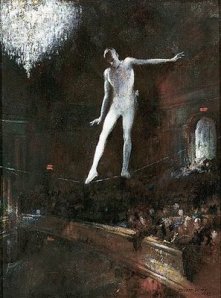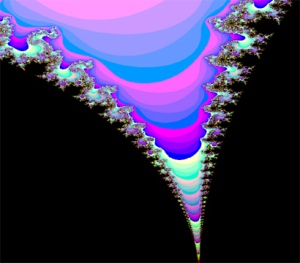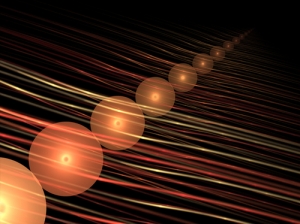Heidekolb's Blog
In the Beginning there was the Word ~ C.G.Jung-The Red Book Reflections
11 Comments
I am not a great believer in words..but I guess the more people believe in words the more powerful they can be.. (thank you Mona K). I came across these words in my twitter stream just as I pondered Jung’s imaginal encounter with “the Anchorite” in the Red Book (RB), in which the two of them discuss the meaning of words.
We are shaped by the spoken and, to even a greater degree, by the written word.

The Anchorite (an inner, imaginal figure) speaks to Jung: “Surely you know that one can read a book many times – perhaps you almost know it by heart, and nevertheless it can be that, when you look again at the lines before you, certain things appear new or even new thoughts occur to you that you did not have before”.
What is suggested here is to appreciate the “word” as a symbol and not as a sign with a definitive, unmovable meaning. A symbol is a door into the unknown and language, the word, can be such a portal. We all the know the power of poetry or of a book that transported us into another world. A good piece of writing can take us to very unexpected places, if we allow it to happen. “A succession of words does not have only one meaning. But men strive to assign only a single meaning to the sequence of words, in order to have unambiguous language”, the Anchorite proclaims.
Like a tightrope walker we are asked to perform a delicate balancing act. Words and language allow us to grasp and assimilate the nature of reality. It is hard to detach the word from human consciousness. “What was word, shall become man. The word created the world and came before the world. It lit up like a light in the darkness“, Jung writes. He also says that “this striving is worldly and constricted” and the mysterious addition that this striving “belongs to the deepest layers of the divine creative plan”.
Words and language allow us to grasp and assimilate the nature of reality. It is hard to detach the word from human consciousness. “What was word, shall become man. The word created the world and came before the world. It lit up like a light in the darkness“, Jung writes. He also says that “this striving is worldly and constricted” and the mysterious addition that this striving “belongs to the deepest layers of the divine creative plan”.
Initially the limited, narrow range of meaning provides security. We need to believe the illusion that we know what is what. Jung writes, “the unbounded makes you anxious since the unbounded is fearful and humanity rebels against it”.
The paradox: We must build walls of meaning in order to emerge as conscious beings out of the chaos, but then these very walls must be broken down, because “words should not become Gods”.
One way of measuring ego-strength and maturity of personality is to assess a person’s capacity to tolerate ambivalence. This capacity is closely related to the ability to feel empathy. It is all about tolerating otherness. Empathy is the genuine ability to see the world through the eyes of another. Another who is truly different, someone who cannot be easily understood. It takes effort (and ego-strength) to make room for another standpoint, another meaning. There are many ways to be right. We have reached maturity when we can give up tour need to be right without losing ourselves and our values.
Imagine ~ making room ~ imagine that the entire universe is within you and every person, every other living creature is a parallel universe ~ no either/or, no right or wrong
“He who breaks the walls of words overthrows Gods and defiles temples”, Jung writes. We need to break down the prison of stale and empty words. We need to dismantle inherited belief systems, which have lost the spark of life. We need to give up the delusion that a word in itself represents truth. It does not matter whether the word is in the Bible or in another writing considered sacred, in your favorite novel, on the internet or in one of our ingrained thought patterns. The word may give us temporary security. That may be necessary for some time. But the evolution of consciousness cannot be stopped, it can only be resisted, which makes it harder. The evolutionary trajectory of life pushes us towards new meaning. Meaning full of juicy freshness and uniquely individual. This is what Jung’s entire life’s work was about. But this encouragement comes with a warning. Jung writes: “But no one should shatter the old words, unless he finds the new word that is a firm rampart against the limitless and grasps more life in it than in the old word”. We find this over and over again in Jung’s work. Jung who parted ways with Freud, because he believed that the unconscious did not only need to be tamed, but was also the source of rejuvenation and great treasures, was also acutely aware that its forces were so powerful that it could sweep us into the chaos of psychosis at any time.
The word is a container and a prison. We need to find the balance on the tightrope. Words, stories, narratives create our lives. As we grow, our stories, memories and narratives can change. Are our narratives, the way we think about ourselves still true? Are they still meaningful in the sense that light and life are pulsating through them? Or do they need to be shed like a serpent leaves its old skin behind? Nothing is forever. We are always becoming.
Nothing is forever. We are always becoming.